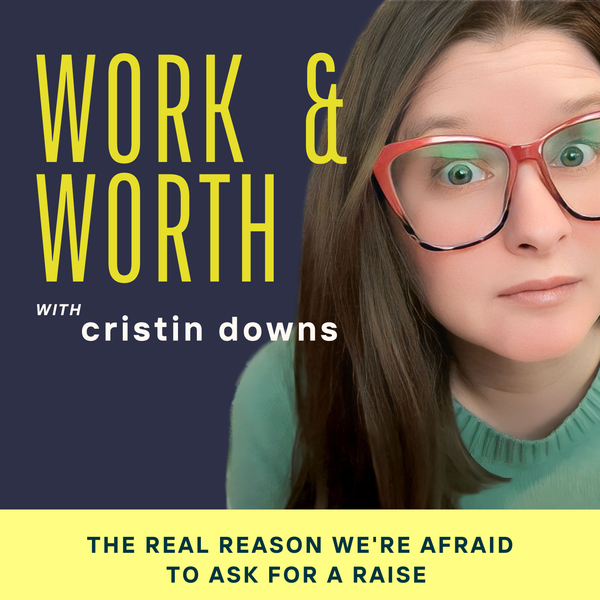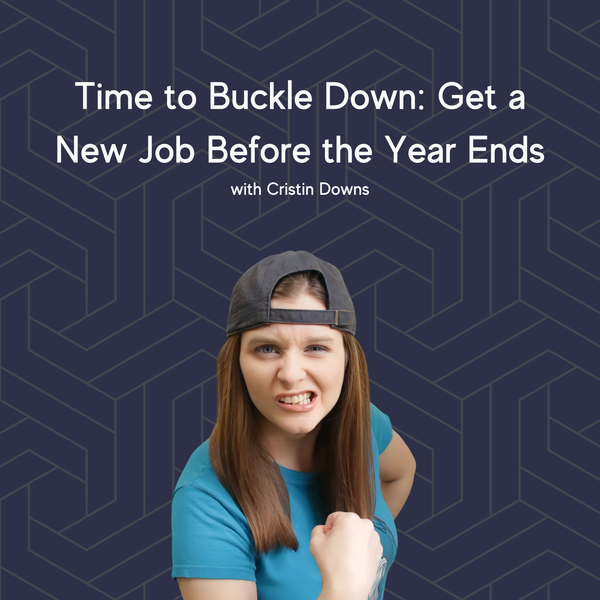Ever wonder what the difference is between a career pivot and a career change? I've got you covered!
When it comes to how career changers are usually treated, it's definitely like they're doing you a favor. What does that look like in practice? Of course, it affects your pay. You're gonna get paid less because they don't believe they need to pay you more because they took a chance on you, and that was risky for them and all of that.
Welcome back to the Work and Worth podcast! In today's episode, we're diving deep into the critical differences between a career pivot and a career change. Ever wondered if you need to start fresh in a new field or if you can leverage your existing skills in a new industry? We'll break it all down. We'll explore real-life examples from regulated industries like nursing, where a career change is necessary, versus unregulated sectors, where a pivot could be your best move. Plus, we'll discuss how to position yourself as a strong candidate and why hiring managers should see pivoters as the hidden gems they are. Stay tuned as we redefine how you think about the next steps in your professional journey.
In specifics I talk about:
- Terminology: career change, career pivot, and career transition
- Defining each term
- Approach for and perspective on career pivots
- How people think about career changers
- Why would anyone hire a career pivoter?
Timing overview:
00:00 Transition to new career with diverse possibilities.
06:10 Unusual titles, reframing education, and personal experience.
08:07 Career pivot preferred; watch out for treatment.
10:37 Career pivot energizes organizations for innovation.
Important links from the episode (affiliate links might be included):
- Check out my website
- Find me on Instagram (and DM me!)
- Start a free strategy session
- Join the free community
Click here to listen on more than a dozen platforms!
Did you hear a weird sound in this episode? Meet Sandy, my destructive teenage cat.

Transcript
Hello, and welcome. This is the Work and Worth podcast. I am Cristin Downs, your host. I'm so happy that you're here with me today. I am a positivarian. I believe that all things are possible, and what we need to do is keep trying different ways, be focused, and be flexible. That is how we achieve something unexpected, something people told us could not be done. I am an executive coach, and I specialize in career pivots.
Today, I want to talk to you about career pivots and career changes. You will often hear me use these terms interchangeably in my content. The reason for this is that most people use the term career change, but that's not always what they mean. Another term you'll hear is career transition. I don't use that term as much. From a terminology perspective, career transitions can encompass both career changes and career pivots. I specialize in the pivot part.
What is the primary difference between a career change and a career pivot? In my opinion, it's about where you end up. A career change means that you're starting over, beginning in the same position as anyone else who is starting anew. In contrast, a career pivot involves using your transferable skills to change careers without a demotion or a pay cut.
Let's discuss some examples. There are careers where you would have to make a change and could not pivot. For instance, if you wanted to become a nurse, nursing is a highly regulated field. There are specific exams and education requirements. To become a nurse, you would need to go back to school, complete an accredited program, sit for certain exams, and start at the same role as any other new nurse. However, because of your previous work history, you might advance faster within that role due to your understanding of the work environment and your prior experience.
That's a career change. A career pivot, on the other hand, occurs in an industry that is unregulated regarding the level of training, education, or exams required. In such cases, your work experience, soft skills, and hard skills can be useful in a different industry. Examples include teachers becoming customer success managers or project managers, or individuals in higher education transitioning to program managers or communications directors.
I've worked with professors who have moved into federal jobs or non-academic versions of their positions. For example, a professor focused on environmental studies might transition to a climate change organization, using their skills and knowledge in a new context. Instead of teaching and conducting research, they work on behalf of an organization to further its objectives. This is the primary difference between a career change and a career pivot.
Does this mean you can't bring a career change mindset to a career pivot? Absolutely not. Many people do. On platforms like LinkedIn, you might see individuals looking to move into an unregulated industry, presenting themselves as willing to start at a lower pay to get a chance. They essentially make the case, Give me a chance. Put me in, coach.
In contrast, a pivoter presents their skills differently. For example, someone might say, I manage 15 projects a month for 5,000 participants, generating $5,200,000 in revenue. This person could be a residence hall advisor or a residence coordinator, reframing their work experience to make sense in a new industry. They are essentially saying, I have all the experience you need; I've done all the things you need done, just not in your industry.
In the career pivot space, it can be more challenging if you're coming from an industry with its own jargon. For example, in higher education, we have titles like assistant deans and provosts that don't translate well. Similarly, in K-12 education, individuals might have done creative learning and development programs or mentoring but don't talk about professional development in the same way. We need to reframe it to make sense to new employers.
Why do I have such strong opinions about this? Probably because I am a career pivoter myself. I have pivoted many times and dislike being treated as if I'm asking for a favor. When I wanted to change careers, I didn't want to bring that energy of asking for a chance because I believed I had every skill needed. Even if you present yourself as a career pivoter, some people might still see you as a career changer. However, that's not how I think about it, and it's not the energy I believe you should bring.
Your goal is to be treated like any other applicant. Even though they might pay you a bit less than someone with direct experience, it could still be significantly more than what you were making in a chronically underpaid industry. That's why I prefer the career pivot approach and watch out for my clients during the interview process and once they're in the new job.
Sometimes people ask me why anyone should hire a pivoter. They feel no one will take a chance on them. I always tell them that a career pivoter is a gift to the company because they bring experience, skills, and knowledge without the baggage or politics of the current industry. If you're looking for someone with a fresh perspective, a pivoter is a great choice.
In a small organization, it might not always make sense to hire a pivoter. However, if your organization is stagnant and needs new energy, a pivoter can bring innovation and fresh ideas. That's why I recommend considering the career pivot path.
If you have any questions or want to discuss this further, please find me on Instagram and send me a DM at @workandworthcoach. If you're considering a career pivot and want to talk about it, visit my website, workandworthcoach.com. There's a Start a Call button in the header. You can watch a short video about who I am and how I help, and then we can have a conversation about your goals. I'll offer you a strategy, and if you want help implementing it, we can discuss that further. Thank you so much, and I hope you have a wonderful day.





